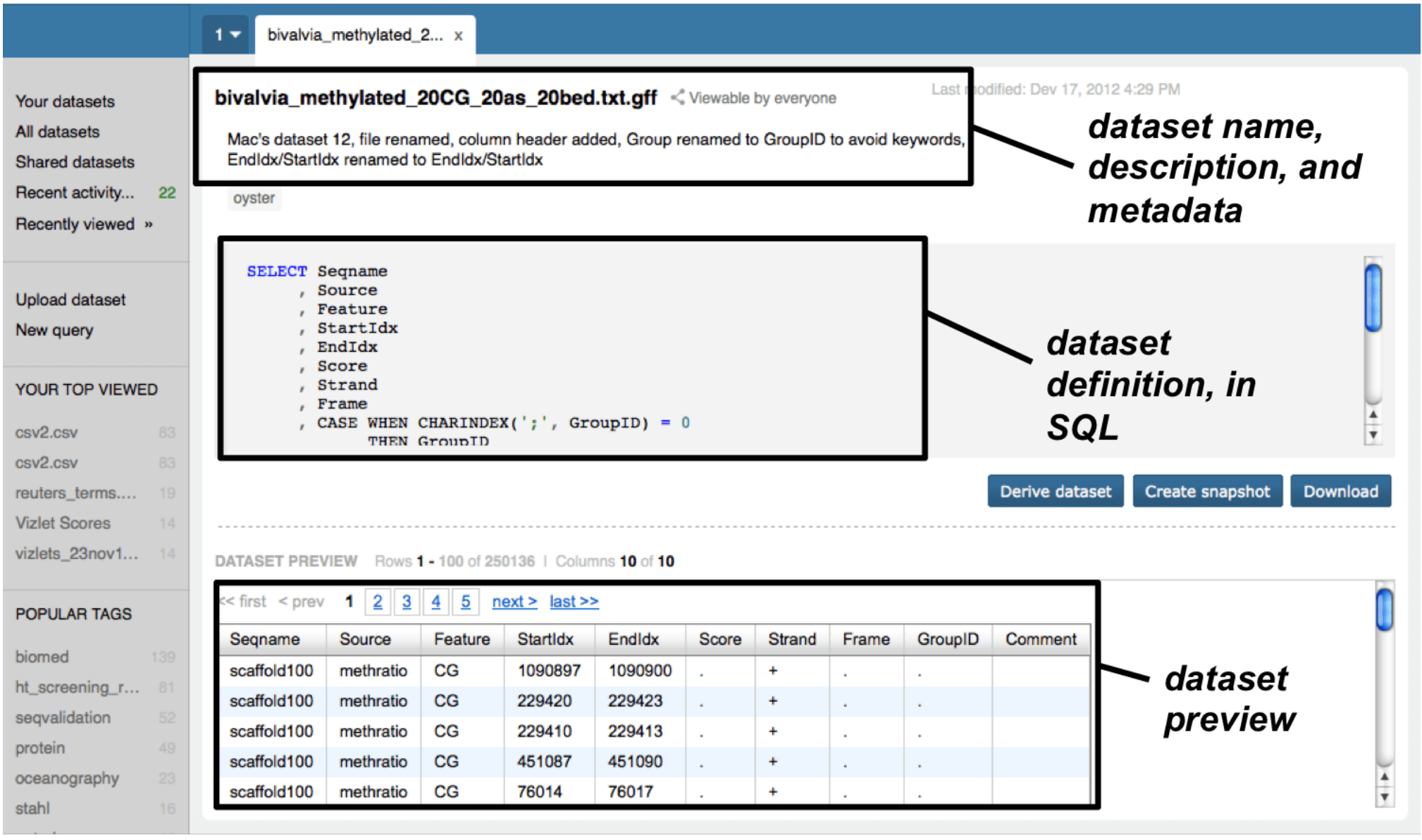SQLShare: Results from a Multi-Year SQL-as-a-Service Experiment
Published at
SIGMOD
| San Francisco, CA, USA
2016
- Most Reproducible Paper Award

Data analysts can use SQL to analyze data; if the system supports complex queries.
Abstract
We analyze the workload from a multi-year deployment of a databaseas-a-service
platform targeting scientists and data scientists with minimal database
experience. Our hypothesis was that relatively minor changes to the way
databases are delivered can increase their use in ad hoc analysis environments.
The web-based SQLShare system emphasizes easy dataset-at-a-time ingest, relaxed
schemas and schema inference, easy view creation and sharing, and full SQL
support. We find that these features have helped attract workloads typically
associated with scripts and files rather than relational databases: complex
analytics, routine processing pipelines, data publishing, and collaborative
analysis. Quantitatively, these workloads are characterized by shorter dataset
"lifetimes", higher query complexity, and higher data complexity. We report on
usage scenarios that suggest SQL is being used in place of scripts for one-off
data analysis and ad hoc data sharing. The workload suggests that a new class of
relational systems emphasizing short-term, ad hoc analytics over engineered
schemas may improve uptake of database technology in data science contexts. Our
contributions include a system design for delivering databases into these
contexts, a description of a public research query workload dataset released to
advance research in analytic data systems, and an initial analysis of the
workload that provides evidence of new use cases under-supported in existing
systems.